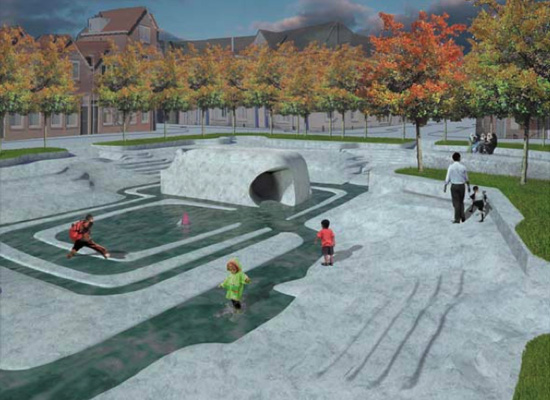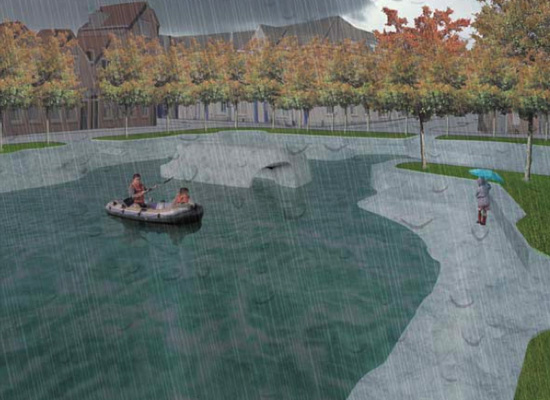
To launch its 14th anthology, Water, Alphabet City has organized a series of events this week in Toronto, two of which are the HYDROCity symposium and its accompanying exhibition at the University of Toronto. Another event is a lunchtime talk in which Jeroen Bodewits will discuss Waterpleinen, a project designed by Florian Boer and Marco Vermeulen to reconfigure the stormwater infrastructure of Rotterdam.

In Florian Boer and Marco Vermeulen's proposal, rainwater runoff isn't funneled into a complex system of underground pipes, a system that is rather expensive to build and maintain, but is managed instead through a network of surface reservoirs, the Waterpleinen, or Watersquares. These storage spaces will be dry for most of the year, but during storm events, they will collect water from the surrounding neighborhood. If one reaches capacity, excess water will overflow into another basin. After the rain, the collected water will slowly recede into nearby bodies of water or seep into the soil.
So instead of being buried in concrete, excised from the daily life of the city and only experienced by municipal workers, urban hydrology is visibly, even prominently, incorporated into the surface fabric of the city. Programmed with recreational opportunities when its dry and even while inundated, its infrastructure provides active public spaces for the local area, not dark playgrounds for a handful of urban explorers. It even becomes an event, its frolicking rivulets and interior lakes staged for the young and old.

Originally developed in 2005, this concept has since become official urban policy. At least 25 watersquares are planned for Rotterdam in the coming years, with a prototype to be constructed soon.
Hyperlocalizing Hydrology in the Post-Industrial Urban Landscape